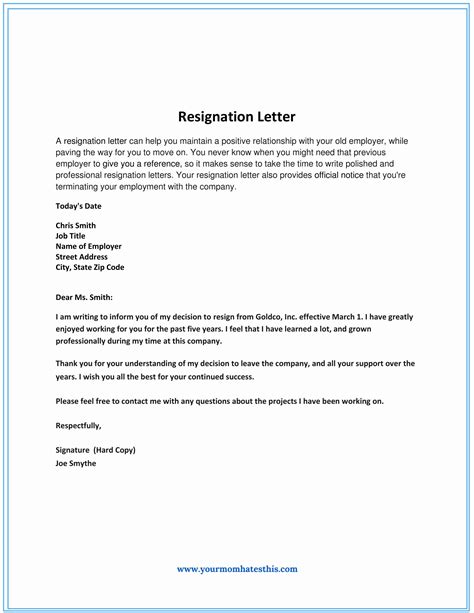Guide To Giving Notice At Work: Resignation Do's And Don'ts

Quitting a job can be a challenging decision, but once you have made up your mind, it is important to do it the right way. Giving notice is a professional and courteous way to leave a job, and it can help you maintain a positive relationship with your employer and colleagues. In this guide, we will discuss the do’s and don’ts of giving notice at work, and provide you with practical tips to make the process as smooth as possible.
Do Plan Ahead
Giving notice is not something you should do on a whim. It requires careful planning and consideration. Before you give notice, make sure you have a plan in place for your next steps, such as finding a new job or taking time off to travel. This will help you avoid unnecessary stress and uncertainty.
Research Your Company’s Policies
Before you give notice, it is important to know your company’s policies regarding resignation. Check your contract or employee handbook for information on notice periods, procedures for giving notice, and any other relevant policies. This will help you avoid any misunderstandings or disputes with your employer.
Choose the Right Time
Timing is everything when it comes to giving notice. Choose a time when your employer is not under a lot of pressure, such as during a busy period or when a major project is due. This will help ensure that your resignation is received positively, and that your employer has time to plan for your departure.
Don’t Burn Bridges
Resigning from a job can be an emotional experience, but it is important to keep your emotions in check and maintain a professional demeanor. Here are some things to avoid when giving notice:
Don’t Badmouth Your Employer
Even if you are leaving because of issues with your employer, it is important to remain respectful and professional. Avoid badmouthing your employer or colleagues, and focus instead on your reasons for leaving and your future plans.
Don’t Leave Your Colleagues in the Lurch
Make sure to give your colleagues enough notice so that they can prepare for your departure. Offer to help with the transition, such as training your replacement or providing a detailed handover report.
Do Communicate Effectively
Effective communication is key when giving notice. Here are some tips to help you communicate effectively:
Be Clear and Concise
When giving notice, be clear and concise about your reasons for leaving, your notice period, and your plans for the future. This will help avoid any misunderstandings or confusion.
Put it in Writing
It is best to give notice in writing, such as in an email or letter. This provides a clear record of your resignation and can help avoid any disputes or misunderstandings later on.
Don’t Forget the Details
When giving notice, it is important to take care of the details. Here are some things to keep in mind:
Give Adequate Notice
Make sure to give your employer adequate notice, as per your company’s policies. This will help ensure a smooth transition and maintain a positive relationship with your employer.
Return Company Property
Make sure to return any company property, such as keys, laptops, and mobile phones, before you leave. This will help ensure that you leave on good terms and avoid any disputes.
Conclusion
Giving notice is an important step in leaving a job, and it is important to do it the right way. By planning ahead, avoiding burning bridges, communicating effectively, and taking care of the details, you can ensure a smooth and professional transition. Remember, the way you leave a job can have an impact on your future career prospects, so it is important to leave on good terms.
FAQs
How much notice should I give?
Check your company’s policies for information on notice periods. Generally, two weeks’ notice is standard, but you may be required to give more notice depending on your role or contract.
Can I resign by phone or text message?
It is best to resign in writing, such as in an email or letter, to provide a clear record of your resignation. However, if you are unable to do so, a phone call or text message may be acceptable in some circumstances.
Should I tell my colleagues before I give notice?
It is up to you whether you want to tell your colleagues before you give notice. However, if you do choose to do so, it is important to be discreet and avoid causing unnecessary disruption or gossip.
What should I do if my employer asks me to leave immediately?
If your employer asks you to leave immediately, it is important to remain calm and professional. Ask for an explanation and try to negotiate a reasonable notice period if possible. If you are unable to do so, make sure to collect any personal belongings and return any company property before you leave.
